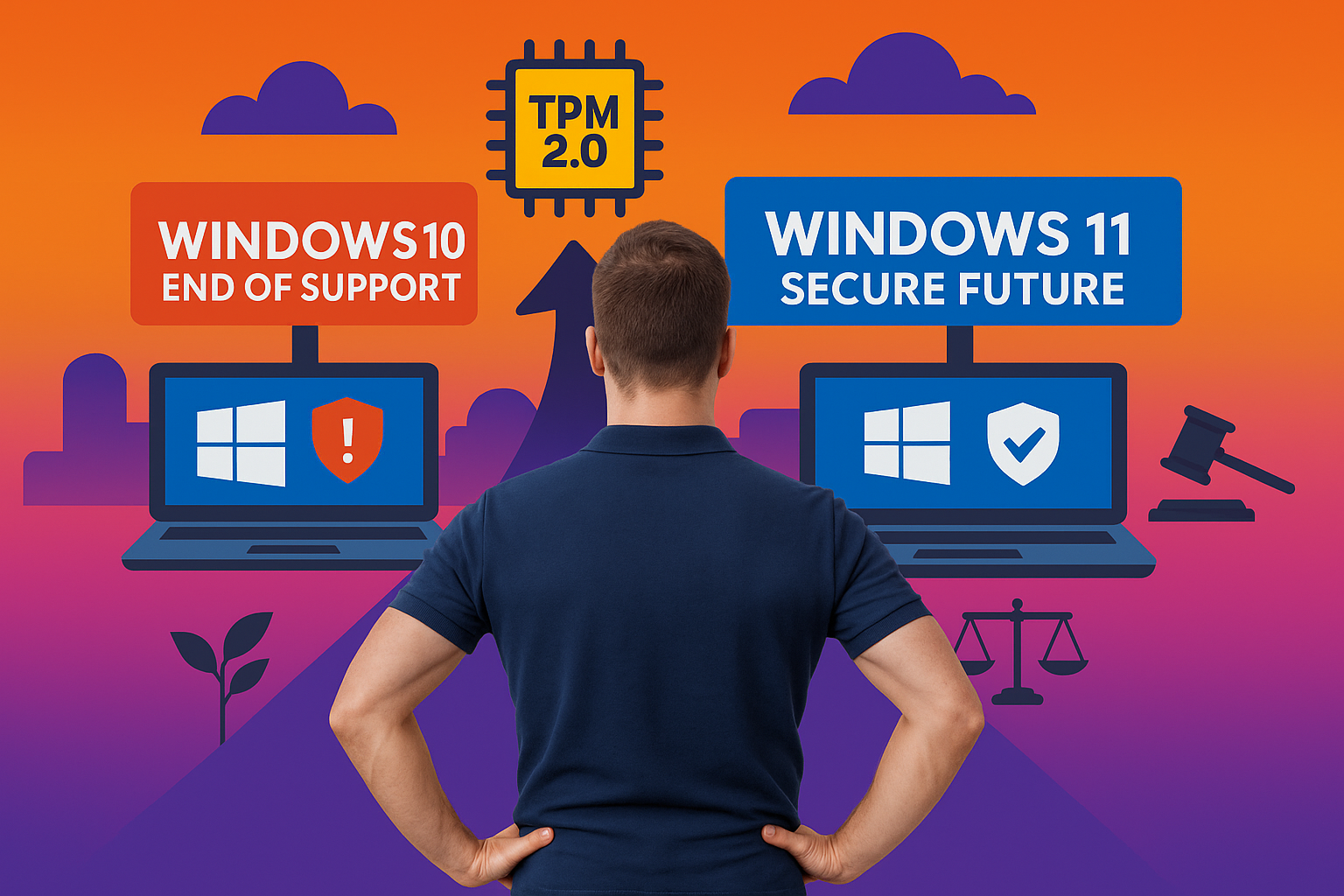Microsoft has officially announced that Windows 10 will reach end-of-support on October 14, 2025. For law firms and legal professionals, this isn’t just another tech update—it’s a wake-up call. Without regular updates, your firm could be exposed to serious security vulnerabilities, compliance risks, and operational inefficiencies.
What “End of Support” Really Means
When Microsoft ends support for an operating system, it stops providing critical security patches, performance updates, and technical assistance. This means any new vulnerabilities discovered after October 2025 will go unpatched—leaving your computers open to exploitation. For law firms handling confidential documents, client communications, and case data, this is more than just an inconvenience—it’s a potential breach waiting to happen.
Can You Upgrade Your Existing PC to Windows 11?
In some cases, yes. But there’s a catch. Microsoft has strict hardware requirements for Windows 11, including:
- A supported processor (usually Intel 8th Gen or AMD Ryzen 2000 and newer)
- Secure Boot capability
- TPM 2.0 (Trusted Platform Module) — a hardware-based security chip that helps protect encryption keys and user credentials from malware and hackers
If your computer lacks TPM 2.0, or if the CPU is older than Microsoft’s compatibility list, your system won’t qualify for the Windows 11 upgrade—even if it’s running fine today.
What If Your PC Can’t Be Upgraded?
If your PC doesn’t meet Windows 11 requirements, replacing it is the safest path forward. Older devices not only lack compatibility—they also lack the performance and security architecture needed to run today’s advanced legal software, secure collaboration tools, and cybersecurity platforms like EDR (Endpoint Detection and Response), email threat protection, and encrypted backup systems. Continuing to use outdated systems means you’re likely piling up technological debt, which accumulates risk and slows down your team.
The Cybersecurity Risk of Old Hardware
Most older PCs were never designed with today’s cybersecurity landscape in mind. They may not support newer encryption standards, multi-factor authentication, or secure boot mechanisms. For legal professionals, where client trust and data protection are paramount, using outdated machines means opening the door to ransomware, phishing, and insider threats that modern systems are better equipped to prevent. Simply put: if it can’t run Windows 11, it can’t run your future cybersecurity stack either.
How 2b1 Inc. Can Help Your Transition
At 2b1 Inc., we specialize in helping law offices modernize their IT infrastructure without disrupting daily operations. Whether you need to:
- Assess if your current systems are compatible with Windows 11
- Perform clean upgrades while maintaining critical data and configurations
- Select new, optimized hardware for legal workflows
- Implement next-generation cybersecurity tools
- Train your team on secure practices and compliance protocols
—we can help. Our expert team ensures your transition is secure, strategic, and stress-free, so you can keep your practice running smoothly and confidently in a post-Windows 10 world.
Final Thoughts: Take Action Before the Clock Runs Out
October 2025 may feel far away, but smart firms are already planning their upgrades and replacements to avoid last-minute rushes and supply chain delays. Don’t wait for vulnerabilities or compatibility issues to disrupt your operations. Reach out to 2b1 Inc. today and let us help you stay ahead of the curve—and ahead of the threats.


